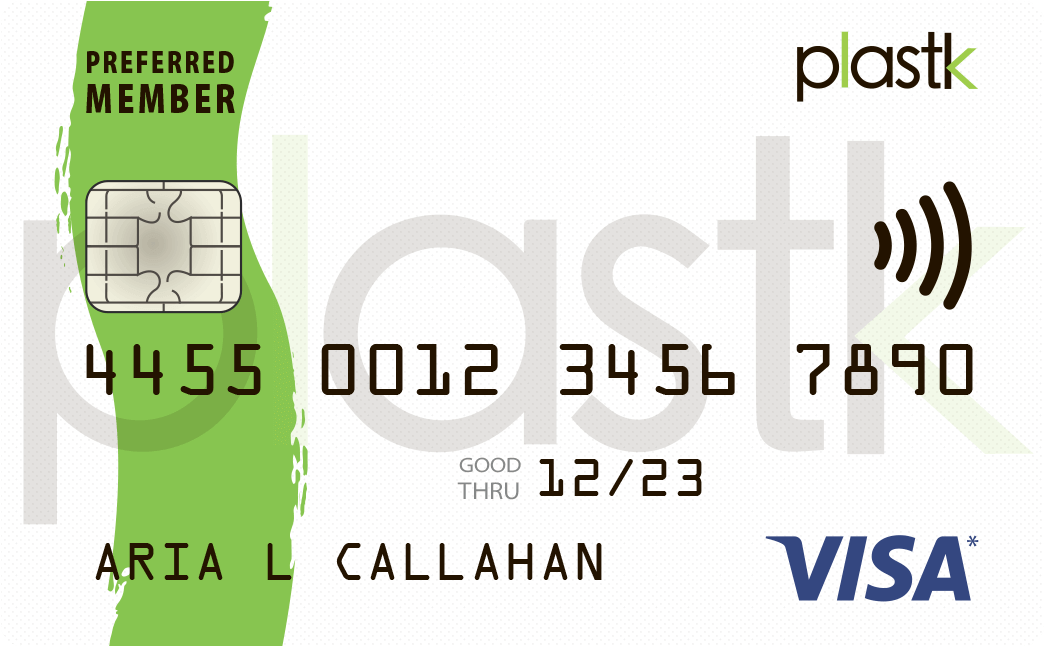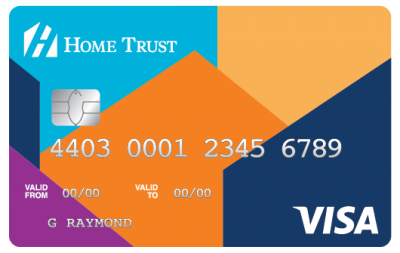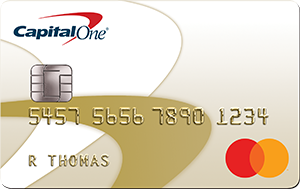Many or all of the products featured here are from our partners who compensate us. This may influence which products we write about and where and how the product appears on a page. However, this does not influence our evaluations. Our opinions are our own.
A secured credit card is an incredible tool for building credit history or rebuilding after a bad setback. Use it wisely and keep your account in good standing, and one of Canada’s best credit cards will help strengthen your credit.
- The best secured credit cards
- Summary of the best secured credit cards
- How secured credit cards work in Canada
Best secured credit cards in Canada
Best overall secured credit card
Neo Card™ (Secured)

-
Annual Fee$0
-
Interest Rates19.99%-26.99%Interest rates range from 19.99%-26.99%. The standard rate on purchases and cash advances is dependent on Neo Financial’s assessment of your credit application, credit profile, and your province.
-
Min. Deposit$50
-
Maximum Deposit$10,000
-
Our TakeThe Neo Card™ (Secured) is a no-fee card that earns cash back rewards and offers access to high-interest savings.
Pros- A small $50 minimum deposit makes this card accessible to consumers of all budgets.
- Earn up to 15% cash back on purchases with select Neo partners.
Cons- Interest rates could be as high as 26.99% for some users.
- While Neo plans to report card activity to TransUnion, the company has confirmed that this function isn't fully operational yet, so the credit-building benefits of this card will be delayed.
-
Product Details
- Earn a 0.5% cash back guarantee, an average of 5% unlimited cash back at thousands of Neo partners, and up to 15% cash back on your first purchase at participating partners.
- No annual fee for the Standard rewards plan.
- $50 minimum security fund deposit required.
- $10,000 maximum security fund deposit.
- To apply, visit member.neofinancial.com and create an account. Select “Credit”, pick either the Neo Card™ or the Hudson’s Bay Mastercard, and then choose “Secured Card” as the type of credit you are looking for.
- Hard credit checks are not made on applications.
- Guaranteed approval, as long as you meet eligibility requirements.
- Ability to upgrade to an unsecured rewards credit card.
- Link your account to a Neo Money™ account and earn 2.25% interest on savings.
- Purchase rates range from 19.99%-26.99%. The standard rate on purchases and cash advances is dependent on Neo Financial’s assessment of your credit application, credit profile, and your province.
- To be eligible, you must be able to provide security funds and be a Canadian resident of the age of majority in the province or territory where you live.
Great for low-interest + rewards
Plastk Secured Rewards Card

-
Annual Fee$120$48 + $6 monthly maintenance fee
-
Interest Rates17.99% / 21.99%17.99% for purchases, 21.99% for cash advances
-
Min. Deposit$300
-
Maximum Deposit$10,000
-
Our TakeWhy we like it
The Plastk Secured Rewards Card features a welcome offer, the ability to earn rewards on every purchase, and a subscription service with credit monitoring and financial education resources.
Pros- Intro offer includes a 0% promotional interest rate for the first three months and a sign-up bonus of 5,000 points ($20 value).
- Earn rewards on every purchase.
Cons- It’s not just the annual and monthly maintenance fees that add up — card holders will need to carefully read the terms and conditions for hidden costs, like the $35 charge for dishonoured payments, the 4.5% foreign conversion fee, or the chance of getting hit with a 29.99% interest rate after two late payments in a year.
- Credit activity is only reported to one credit bureau.
- You’ll find a lot of negative consumer reviews for this card across the web — especially with the Better Business Bureau (bbb.org) and on the Apple and Google Play app stores.
-
Product Details
- Intro offer: Receive 0% Interest Rate on purchases for the first 3 months when you sign up for the Plastk Secured Credit Card. In addition, new Plastk Secured Visa card holders can earn 5,000 points ($20 value), redeemable after three months. Terms and conditions apply. Click "Apply Now" for more information.
- Earn 250 Plastk points on every $1 spent. Plastk points are worth $0.004.
- Redeem points for statement credits, gift cards, merchandise, exclusive member events and other perks.
- $120 annual cost: $48 annual fee and $6 monthly maintenance fee ($72 over the course of one year).
- $300 minimum security fund deposit required.
- $10,000 maximum security fund deposit.
- Hard credit checks are not made on Plastk Secured Rewards Card applications.
- Credit activity is reported to Equifax, one of the two major consumer credit bureaus in Canada.
- Guaranteed approval, as long as you meet eligibility requirements.
- Access your full credit report powered by Equifax, ability to monitor your credit report, receive daily alerts, and receive financial education through Plastk Sentinel, a subscription service available for $15.99 monthly or $149.99 annually (plus applicable taxes).
- Refer a friend for the chance to earn 1,250 Plastk reward points ($5 value).
- Preferred rates: 17.99% for purchases, 21.99% for cash advances. If you are late making two minimum payments within a calendar year, you will be charged the default interest rate of 29.99%.
- To be eligible, you must be able to provide security funds and be a Canadian Citizen or a Permanent Resident and the age of majority in the province or territory where you live.
Great for low-interest
Home Trust Secured Visa Card

-
Annual Fee$0 / $59$0 annual fee with a 19.99% interest rate. $59 annual fee with a 14.90% interest rate.
-
Interest Rates14.90% / 19.99%14.90% on purchases, 19.80% on cash advances
-
Min. Deposit$500
-
Maximum Deposit$10,000
-
Our TakeWhy we like it
The Home Trust Secured Visa offers a straightforward, no-frills experience for credit builders. Plus, there are two secured credit card options to fit a variety of needs: a no-fee card, and a low-interest card with a $59 annual fee.
Pros- Low interest rate.
- Payments are reported to both credit bureaus.
Cons- You’ll need to budget for the annual fee.
- No ability to earn rewards on purchases.
-
Product Details
- $59 annual fee.
- No fee option available with a higher interest rate.
- $500 minimum security fund deposit required.
- $10,000 maximum security fund deposit.
- Hard credit checks are made on Home Trust Secured Visa applications.
- Credit activity, including every payment, is reported to TransUnion and Equifax, the two major consumer credit bureaus in Canada.
- Ability to upgrade to an unsecured credit card.
- Manage your account and billing with online banking.
- Cardholders can choose between a card with no annual fee and 19.99% interest or an annual fee of $59 and 14.90% interest.
- Protection against fraud through Visa’s Zero Liability Policy.
- Preferred rates: 14.90% for purchases, 19.80% for cash advances.
- To be eligible, you must have a source of income and cannot currently be in bankruptcy. You must be able to provide security funds and be a Canadian resident of the age of majority in the province or territory where you live. The Home Trust Secured Visa Card is not available to Québec residents.
Best no-fee secured credit card
Home Trust Secured Visa (No annual fee)

-
Annual Fee$0Lower interest rate available for a $59 annual fee.
-
Interest Rates19.99%19.99% on purchases and cash advances
-
Min. Deposit$500
-
Maximum Deposit$10,000
-
Our TakeWhy we like it
The Home Trust Secured Visa offers a straightforward, no-frills experience for credit builders. Plus, there are two secured credit card options to fit a variety of needs: a no-fee card, and a low-interest card with a $59 annual fee.
Pros- No annual fee.
- Payments are reported to both credit bureaus.
Cons- You’ll need to budget for the $500 minimum deposit.
- No ability to earn rewards on purchases.
-
Product Details
- No annual fee.
- Lower interest rate available for a $59 annual fee.
- $500 minimum security fund deposit required.
- $10,000 maximum security fund deposit.
- Hard credit checks are made on Home Trust Secured Visa applications.
- Credit activity, including every payment, is reported to TransUnion and Equifax, the two major consumer credit bureaus in Canada.
- Ability to upgrade to an unsecured credit card.
- Manage your account and billing online.
- Cardholders can choose between a card with no annual fee and 19.99% interest or an annual fee of $59 and 14.90% interest.
- Protection against fraud through Visa’s Zero Liability Policy.
- Preferred rates: 19.99% for purchases and cash advances.
- To be eligible, you must have a source of income and cannot currently be in bankruptcy. You must also be a Canadian resident of the age of majority in the province or territory where you live. The Home Trust Secured Visa Card is not available to Québec residents.
Great for a low minimum deposit
Capital One Guaranteed Secured Mastercard

-
Annual Fee$59
-
Interest Rates19.80% / 21.90%19.80% for purchases and balance transfers, 21.90% for cash advances
-
Min. Deposit$75
-
Maximum Deposit$2,500
-
Our TakeWhy we like it
The Capital One Guaranteed Secured Mastercard is one of the few secured credit cards that comes with a suite of insurance benefits and premium perks.
Pros- Price protection, extended warranty, travel benefits and several types of insurance, including up to $250,000 in Common Carrier Travel Accident Insurance are included.
- A low $75 minimum deposit is affordable for most consumers.
Cons- No ability to earn rewards on purchases.
- Your credit limit can’t surpass the $2,500 maximum security funds deposit, which is lower than what other secured credit cards typically offer.
-
Product Details
- $59 annual fee.
- $75 or $300 minimum security fund deposit is required.
- $2,500 maximum security fund deposit.
- Hard credit checks are made on Capital One Guaranteed Secured Mastercard applications.
- Credit activity, including every payment, is reported to TransUnion and Equifax, the two major consumer credit bureaus in Canada.
- Ability to upgrade to an unsecured credit card.
- Guaranteed approval, as long as you meet eligibility requirements.
- Includes Capital One Price Protection Service, Purchase Assurance, and Extended Warranty coverage that automatically doubles the original manufacturer’s warranty for up to two years on most items.
- Cardholders benefit from Mastercard Global Service, which includes emergency cash advances, and Zero Liability for unauthorized use of the card.
- Access to travel benefits: Common Carrier Travel Accident Insurance (up to $250,000), a Car Rental Collision/Loss Damage Waiver, baggage delay, and travel assistance.
- Preferred rates: 19.80% for purchases and balance transfers, 21.90% for cash advances.
- To be eligible, you must be able to provide security funds and be the age of majority in the province or territory where you live. In addition, you don’t have an existing Capital One account or a pending application for one, haven’t applied for a Capital One account more than once in the last 30 days or had a Capital One account that was not in good standing in the last year.
Methodology to identify the best secured credit cards
NerdWallet Canada selects the best secured credit cards based on overall consumer value as well as their suitability for specific kinds of consumers.
Our evaluation is weighted by factors: 50% features specific to secured credit cards, 30% fees and interest,12% rewards and 8% intro offer.
- Features specific to secured credit cards include minimum and maximum deposit, ability to upgrade to an unsecured credit card, credit checks and credit reporting.
- Fees and interest consider the annual fee, interest rates, over-the-limit fees, and other costs.
- Rewards value considers earning rates, rewards structure, promotional rates and spending categories.
- The intro offer considers the welcome bonus value, promotional interest rates, and any waived fees.
Other noteworthy features, such as insurance, educational resources, ease of account management, and other special perks and benefits, earn unofficial bonus points. Only secured credit cards with online applications were considered for this list.
Summary of the best secured credit cards:
- Neo Card™ (Secured), best overall secured card
- Home Trust Secured Visa (No annual fee), best no-fee secured card
- Home Trust Secured Visa Card, great for low-interest
- Capital One Guaranteed Secured Mastercard, great for a low minimum deposit
- Plastk Secured Rewards Card, great for low-interest + rewards
Best Credit Cards in Canada
Compare all different credit cards side-by-side and find out the best card that will meet your need with special perks and benefits

What to know about secured credit cards
A secured credit card works like a regular credit card but requires a security deposit, which reduces the risk to the lender. They are available to people with bad credit.
- What is a secured credit card?
- How does a secured credit card work?
- How to get a secured credit card
- Where to get a secured credit card in Canada
- Advantages and disadvantages of secured credit cards
- What to ask before using a secured credit card
What is a secured credit card?
A secured credit card requires the cardholder to provide a cash security deposit to open an account. The card’s credit limit is the amount of the security deposit. So, for example, if you deposit $500, you’ll have a $500 credit limit on the secured card.
The deposit acts as a form of collateral, reducing the lending risk for the credit card provider. If the secured credit cardholder doesn’t make their payments, the issuer can use the deposit to pay off the debts. This is why secured credit cards tend to be easier to qualify for than unsecured, regular credit cards — making them ideal for people with poor credit or no credit history.
When used responsibly and paid on time and in full, a secured credit card can build your credit. If your score enough, you’ll qualify for a traditional unsecured credit card that does not require a deposit.
Some secured credit card providers offer responsible cardholders the ability to upgrade to access an unsecured credit card. If that option isn’t available, you can close the account and apply for an unsecured card elsewhere. Either way, the issuer will pay back the security deposit in full (as long as there are no outstanding payments) when the account is closed.
Each secured credit card provider may have different minimum and maximum deposit requirements. Minimum deposits can be as low as $50, and maximum deposits do not typically exceed $10,000.
Secured vs. unsecured credit cards
With unsecured credit cards, the credit limit provides access to borrowed money that needs to be paid back later. With secured credit cards, that credit limit is drawn from the security deposit provided by the cardholder. Unsecured credit cards also come with benefits, perks and rewards not typically offered by secured cards.
Whether a secured or unsecured credit card is the best fit for you will essentially come down to your credit report and score. Generally, you can expect to need a score of at least 660 to qualify for an unsecured credit card.
If you have a history of bad credit, it will be challenging to find an issuer willing to give you an unsecured credit card that doesn’t come with steep fees and charge high rates of interest. NerdWallet recommends applying for a secured credit card rather than a high-fee unsecured card.
Check your credit score to see what option is best for you.
Back to the top of this section
How does a secured credit card work?
A secured credit card works like a regular, unsecured credit card once you’ve been approved and provided the required security deposit. You can use a secured credit card to make in-person and online purchases and then pay off your balance or make the minimum payment each month.
As with a traditional credit card, the issuer usually reports your payments to Canada’s credit bureaus. As long as you use your card responsibly and make your payments on time, your credit score will rise. But if boosting your credit score is your goal, make sure to apply for a secured card where your payments will be reported — not all issuers report to the credit bureaus.
What is the security deposit for a secured credit card?
The security deposit for a secured credit card can vary widely depending on the issuer. With few exceptions, most secured credit cards in Canada require a deposit of at least $50 to $500.
What is the credit limit for a secured credit card?
Typical credit limits
Credit limits vary with each provider, but you can start with as little as a $50 security deposit, as with Neo’s secured option, and can go up to as much as $10,000.
How to increase credit limits
Each provider may have a different method for increasing your credit limit. As long as it falls within the maximum allowable amount, you should be able to increase your limit if you can provide the security funds.
Making payments
As you would with a regular, unsecured credit card, you will want to make recurring monthly payments in full. To keep your account in good standing, you’ll need to pay at least the required minimum payment.
Remember: secured cardholders must still make their monthly payments, as the security deposit won’t pay off charges to the card. The deposit is only used if the cardholder defaults on payments, which will further hurt your credit score.
Typical secured credit card rates
Secured credit card interest rates vary, from as low as 14.90%, as with Home Trust’s low-interest option, to as high as 24.99%.
If you miss payments, the interest rate could rise as high as 29.99%, as with the Plastk Secured Rewards Card.
Make sure you know how to calculate credit card interest if you aren’t paying in full every month.
Back to the top of this section
How to get a secured credit card
The process for getting a secured card is similar to getting any credit card.
Who can get a secured credit card?
Secured cards are typically aimed at people who are just entering adulthood or are new to Canada and need to build up a credit history. They are also intended for people who would have a hard time getting an unsecured card, like those with bad credit. For that reason, secured credit cards are easier to get than unsecured credit cards.
Eligibility
Credit card issuers tend to be much more flexible with their eligibility requirements for a secured card.
Credit score needed for a secured card
Because secured cards are designed for people with no or bad credit, an issuer may not even consider an applicant’s credit score. Many secured credit card issuers will approve applicants with poor credit scores.
Income requirements
Secured credit cards do not tend to have strict or clearly stated income requirements. For example, there is no minimum income requirement for the Home Trust Secured Visa.
Usually, you just need to be able to provide the security deposit and typically can’t be in bankruptcy
Other requirements
Aside from providing a minimum amount for a security deposit, you generally need to be a Canadian resident who is the age of majority in your territory or province.
How to choose the right secured credit card
Briefly, here are some things to consider when looking for the best secured credit card for you.
Credit bureau reporting
The main point of having a secured credit card for most users is to build a credit history and credit score, so it’s important to ensure that the issuer is reporting payments to a credit bureau.
Affordable deposit
Carefully consider your budget and how much money you can afford to tie up indefinitely as a security deposit. Do you have enough savings in your emergency fund to cover you?
Low or no fees
Fees can vary significantly, so carefully research fees before choosing a secured credit card. Some secured credit cards don’t charge an annual fee, but others do.
Ability to upgrade
One reason to consider going with a credit card issuer that also has unsecured credit card options is so you can upgrade to another type of credit card after you’ve built up your credit.
Application process for a secured credit card
Some major banks in Canada don’t advertise secured credit cards on their websites. They may offer secured cards to some newcomers or students, but you must generally contact the bank to apply.
Some smaller banks and alternative financial institutions that issue dedicated secured credit cards allow prospective cardholders to apply online, and many offer instant or guaranteed approval.
The process is the same as applying for an unsecured credit card. You simply hit the “apply” icon on the website and follow the steps listed, which will go something like this:
- Review the terms and conditions and accept them.
- Provide personal information like your name, address and social insurance number (SIN).
- Possibly provide proof of employment.
- Indicate whether you want to include an authorized user.
- Wait to be approved and, if approved, send in a deposit via bank transfer or cheque.
If you aren’t approved, make sure to wait about six months before applying for another card as credit card issuers view multiple card applications in quick succession as a sign of financial distress.
Back to the top of this section
Where to get a secured credit card in Canada
Most of the major banks in Canada don’t offer dedicated secured credit cards, but you can contact them to ask about secured card options that might fit your needs. You’ll generally have to look to smaller banks or alternative financial institutions for dedicated secured credit cards.
Who offers secured credit cards?
| Financial Institution | Secured Credit Card |
|---|---|
| TD Canada Trust | No dedicated secured card. However, you can arrange for an in-branch appointment to discuss potential secured card options. |
| Royal Bank of Canada (RBC) | No dedicated secured card. However, newcomers or those trying to establish credit can apply for a secured RBC credit card by contacting the bank directly. |
| Canadian Imperial Bank of Commerce (CIBC) | No dedicated secured credit card. |
| Bank of Montreal (BMO) | No dedicated secured card. However, newcomers to Canada looking to build credit can set up an appointment to visit the bank and get a secured card. |
| Scotiabank | Offers a secured credit card to post-secondary students only. Must apply at a branch in person. |
| National Bank of Canada | No dedicated secured credit card. |
| Home Trust | Home Trust Secured Visa card, with two versions: A no annual fee version with 19.99% interest or a low-interest version with an APR of 14.90% and an annual fee of $59. |
| Capital One | Capital One Guaranteed Secured Mastercard |
| Neo Financial | Neo Card™ (Secured) |
| Plastk | Plastk Secured Credit Card |
Credit union secured credit cards
Not many credit unions in Canada offer secured credit cards online. However, since many credit unions are provincial or local, it may be worth contacting your local credit union to ask whether it offers any secured credit card options.
Back to the top of this section
Advantages and disadvantages of secured credit cards
Advantages
- Offer the chance to build credit and improve your score.
- The cardholder’s security deposit sets the credit limit, so there is less chance of overspending, as you might with an unsecured card.
- Easy to get, even for those with no or bad credit.
- Some may offer rewards or cash back.
Disadvantages
- Minimum required security deposits can be as high as $500.
- Some may charge monthly or annual fees.
- It may have high rates of interest or fees.
- You won’t get back your security deposit funds until you close the account, which can be a significant financial burden.
- May include very strict terms and conditions.
Back to the top of this section
What to ask before using a secured credit card
How do I add money to a secured credit card?
The method to add money to a secured card will vary by provider. Often it may just be a matter of contacting your credit card issuer and telling them you want an increase, then providing the funds. Or you may be able to increase your limit online with an e-transfer.
Should I pay my secured credit card early?
A secured credit card can be a helpful tool to build your credit history and score, but only if used wisely. For this reason, it’s a good idea to make payments in full and on time each month to avoid interest charges and improve your score.
While you don’t have to make payments early, it may be a good habit to adopt if you tend to be late or forget to make payments. You may also consider setting up automatic payments or alerts when your balance is due.
How long should I keep a secured credit card?
It’s advisable to keep a secured credit card until you start to see an improvement in your score and feel confident that you can successfully apply for an unsecured credit card. It’s a good idea to aim for a score of at least 660 before applying for an unsecured card for the greatest chance of qualifying and to get the best terms. Timelines vary, but you can expect to use your secured card for at least 12 to 18 months.
What happens if I close my secured credit card?
If you cancel your secured card, you’ll get your full security deposit back as long as you don’t have any pending charges or a balance remaining on the card. It can take up to 60 days to receive your money, as the credit card issuer will want to wait to ensure there are no pending charges.
What are the best alternatives to secured credit cards?
Outside of secured and prepaid cards, there are not many credit card options for Canadians with bad credit or who are looking to build their credit.
Unsecured credit cards for bad credit
It’s very difficult to successfully apply for an unsecured card without credit history or a strong credit score. Capital One offers a Guaranteed Mastercard designed to help cardholders build credit, but the website notes that you may have to provide a security deposit depending on your credit history.
If you have a history of bad credit, it will be challenging to find an issuer willing to give you an unsecured credit card that doesn’t come with high fees and charge high rates of interest. NerdWallet recommends applying for a secured credit card rather than a high-fee unsecured card.
Prepaid cards
Prepaid cards are another handy way to make purchases without cash. Because you have to load them with your own money, prepaid cards can also help you curb spending and avoid accumulating high-interest debt.
However, unlike unsecured credit cards, prepaid cards are not overseen by a credit provider and your use is not reported to a credit bureau. That means prepaid cards can’t help you improve your credit score or establish a credit history.
Student credit cards
Student credit cards are available for university students who don’t often have a built-up credit history, so eligibility requirements are more relaxed. While some student cards are available only to those enrolled in a college or university, most are technically available to anyone.
-
FAQs about secured credit cards in Canada
-
What is an unsecured credit card?
An unsecured credit card, more commonly known as a traditional or regular credit card, is a card the user does not need to provide a security deposit to be approved. The credit card issuer “trusts” that the cardholder will make regular payments and therefore does not require a security deposit. Because no collateral is needed, unsecured cards tend to require applicants to have good credit scores and may also require proof of a minimum annual income.
-
Are credit cards secured debt?
A secured debt is a type of debt in which the borrower provides some form of collateral (such as an asset like a car or home) to guarantee repayment of the debt. Unsecured (also known as regular or traditional) credit cards are not considered secured debt because they do not require a security deposit to protect the lender from the risk of non-payment.
-



